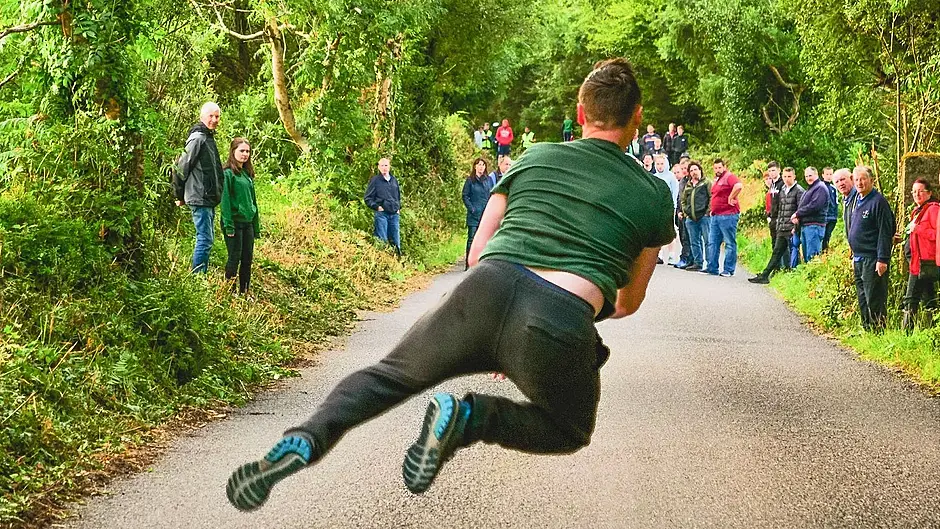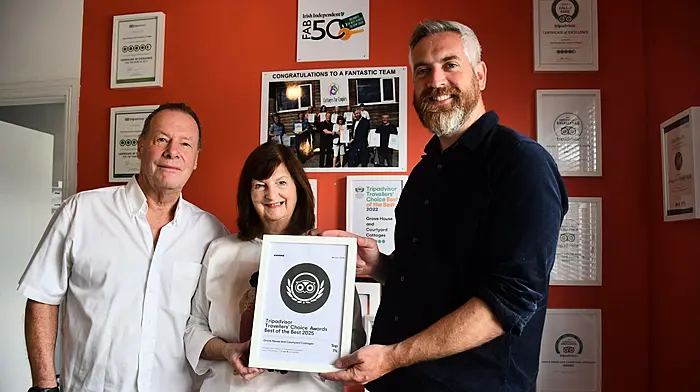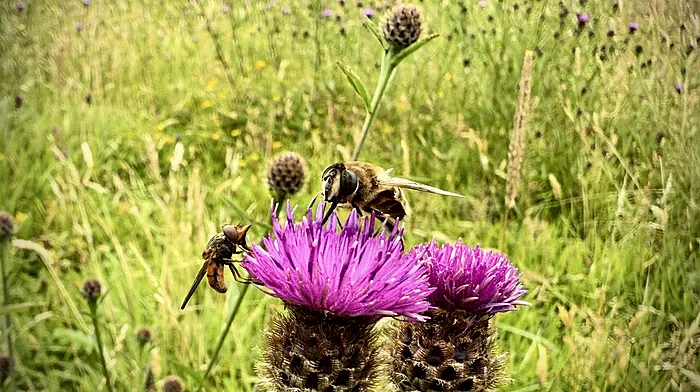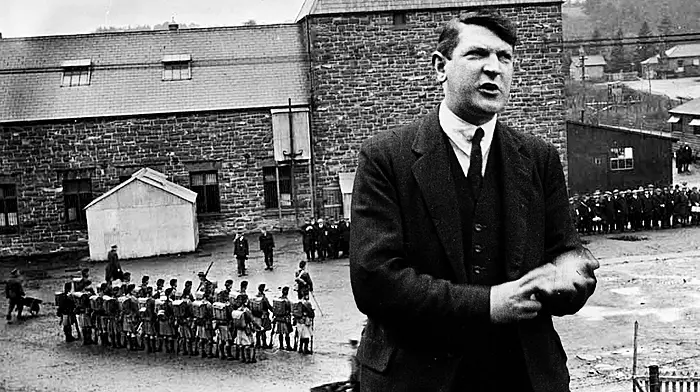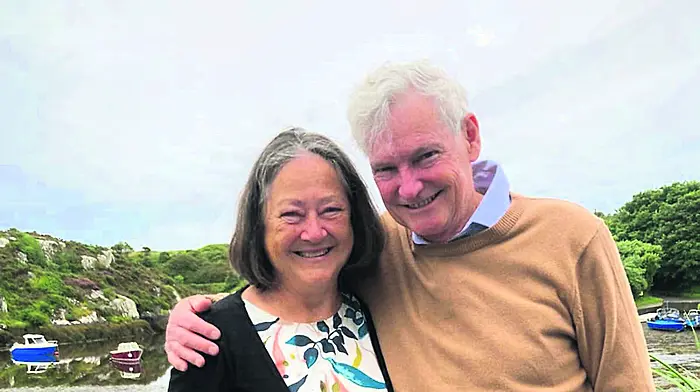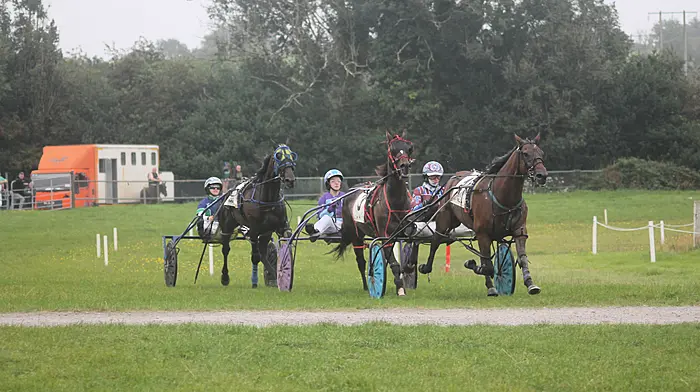Forget skydiving, whitewater rafting and highlining. Along the windy lanes from Ardarostig to Knocknahilan, from Shannonvale to Ballinascarthy, you can get stuck into West Cork’s very own extreme sport: road bowling
At one time, if caught watching a road bowling match, you risked being prosecuted for causing a public nuisance, hauled before the courts and fined.
Supposedly introduced into Ireland during the 1690s, when King William of Orange’s soldiers began chucking cannonballs around out of sheer boredom, road bowling became popular in West Cork and Armagh.
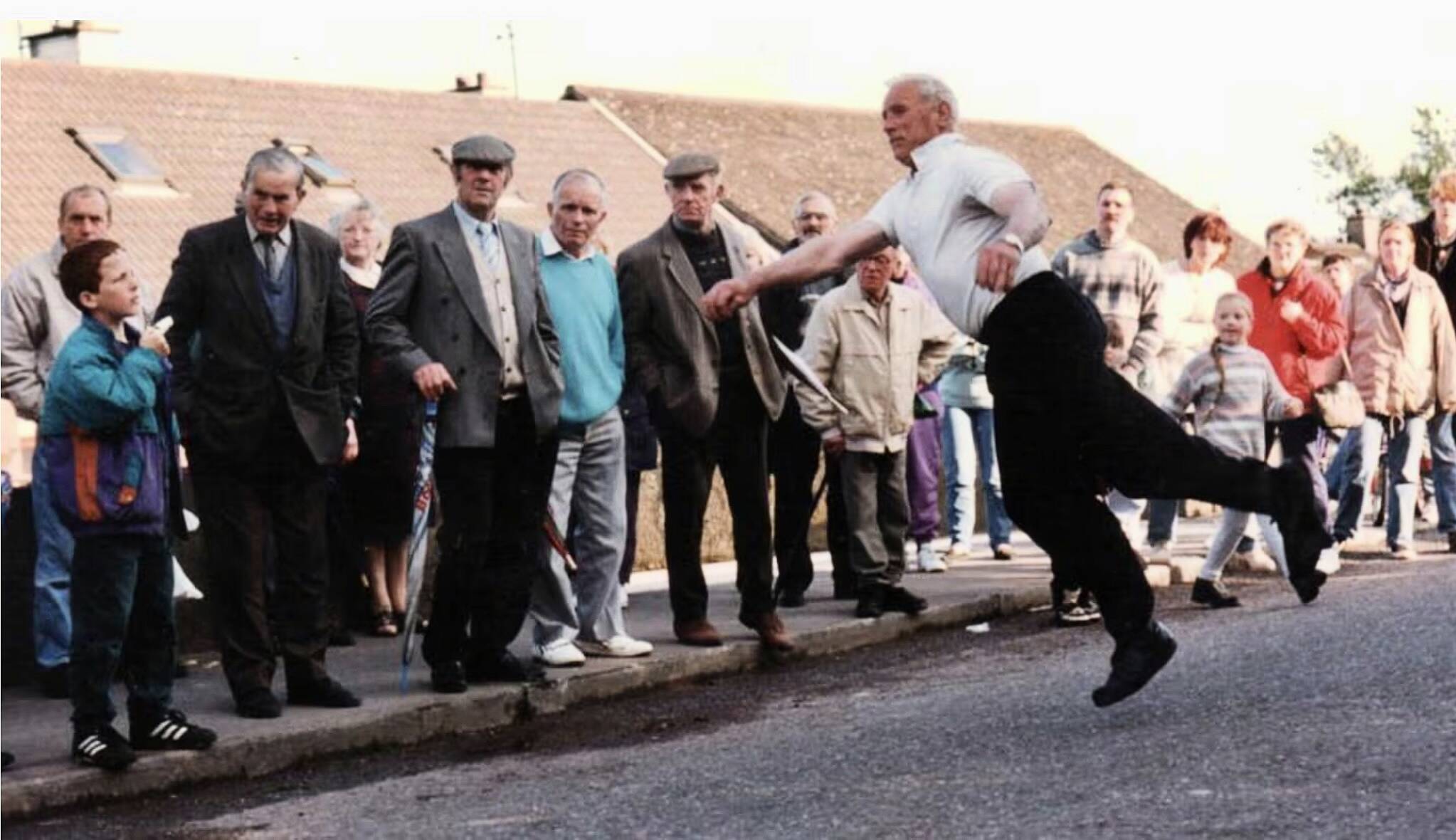 The legendary Mick Barry (1919-2014) in action at Dublin Hill in 1984. (Photo: Irish Times)
The legendary Mick Barry (1919-2014) in action at Dublin Hill in 1984. (Photo: Irish Times)
Some have dubbed the sport ‘the best game in the world’, others ‘unmeaning and reprehensible’, ‘stupid’, and one with ‘no brains to it’.
The rules are similar to golf: complete the distance to the pub in as few shots as possible.
But whereas golf balls are made of rubber and plastic, and weigh an ounce and a half, bowls are made of iron, and are a hefty 28 ounces.
No clubs are required: players flail their arms through 360 degrees windmill-style, before lofting the bowl.
As in golf, each player has a caddie, or ‘road sure’, who helps direct their aim.
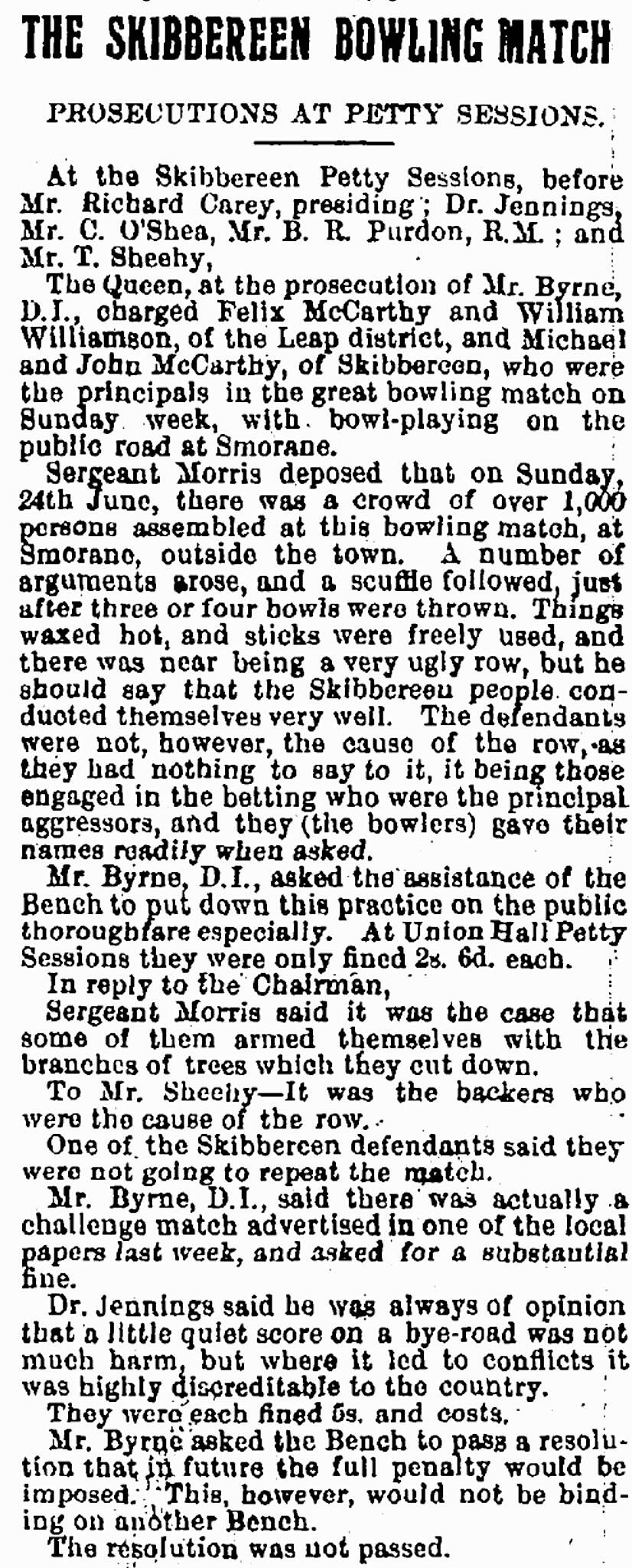 ‘Things waxed hot’ and sticks were ‘freely used’ at a stormy bowling match in Skibbereen in 1900
‘Things waxed hot’ and sticks were ‘freely used’ at a stormy bowling match in Skibbereen in 1900
But in road bowling, players don’t tee off, they ‘tarow off’, a round is a ‘scór’ because the winner was once decided by 20 throws, a ‘cover’ is the distance thrown before the bowl hits the road, a ‘tip’ a chalk line showing where the next shot must be taken, a ‘sop’ a tuft of grass helping players to aim, a ‘big ball’ a good throw, a ‘miler’ exceptional, and a ‘pudding’ a duff.
Today, competitions typically begin after Sunday mass, over a distance of 1.5 to two miles, but in 1898 when Cork’s John McGrath squared up against Bandon’s Jeremiah O’Driscoll, the score was played across a ‘tiresome’ nine-mile course between Ardarostig Mill and Knocknahilan, over three Sundays, six hours each time.
 headmaster Flor Crowley coaching his pupils to take shots outside Behagh School, 1950 (Photos: Noel Sweeney, Dunmanway Historical and Cultural Association)
headmaster Flor Crowley coaching his pupils to take shots outside Behagh School, 1950 (Photos: Noel Sweeney, Dunmanway Historical and Cultural Association)
Players need ‘plenty of animal strength’: Waterfall’s legendary Mick Barry (1919-2014), ‘the greatest modern bowler’ whose arms ‘draped below his knees’, once lofted a 16-ounce ball over Chetwynd Viaduct.
In July 1898, a row broke out because it wasn’t clear where the score ended. ‘The argument lasted for close on three hours, much to the disgust of the anxious spectators,’ commented The Southern Star. Eventually, results were relayed to Cork City, by carrier pigeons.
When a bowl is thrown into a crowd of spectators, it’s pretty high-risk stuff. In 1728 a ‘bullet’ bounced off a stone in the road and caught the Rev Philip Skelton over his left eye. John Sullivan, 18, suffered a fatal skull fracture at Killeen in 1882; ‘a fine young man named Crowley’ from Bandon also died, in 1883.
Although fixtures have always been advertised openly, and the Cork & Bandon Railway Company once ran special trains to events, playing on public roads was - and still is - illegal.
A century ago, the entrance fee was ten shillings and the first prize £20. Nowadays, contests attract huge sums, women and men compete at the highest level, and even under-12s can loft shots.
The community is still deeply involved: imagine another sport where spectators are allowed on the field of play, together with cars, buses, and tractors.
 Big money prizes on offer in Dumanway in 1928.
Big money prizes on offer in Dumanway in 1928.
As Bishop John Buckley recognises, road bowling ‘is part of the texture of Cork, bred in our bones and entwined in our lives…a virus for which there is no cure’. (The Southern Star, December 8th 2001).
There will be a road bowling exhibition at County Library HQ, Carrigrohane Road, Cork, from Friday August 16th to Saturday August 24th as part of National Heritage Week.

